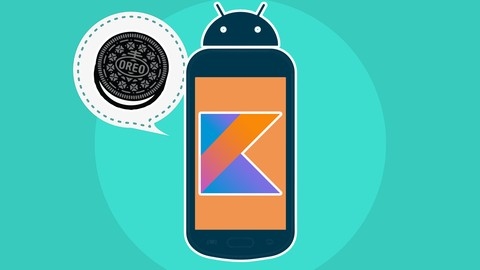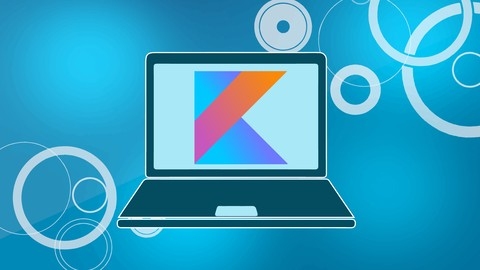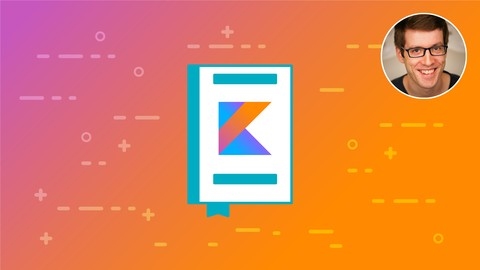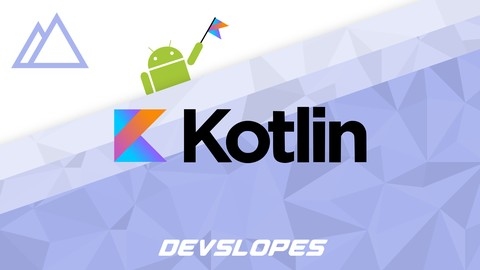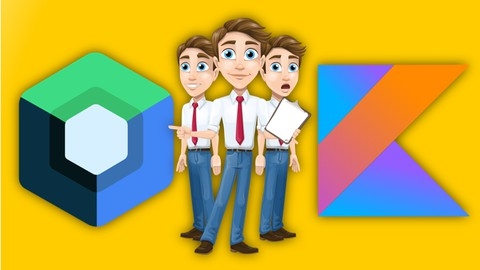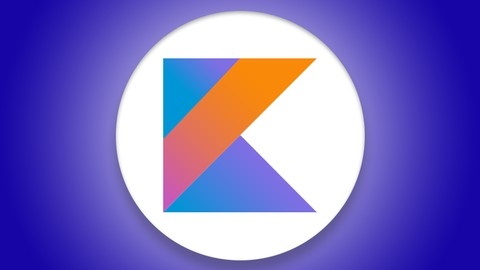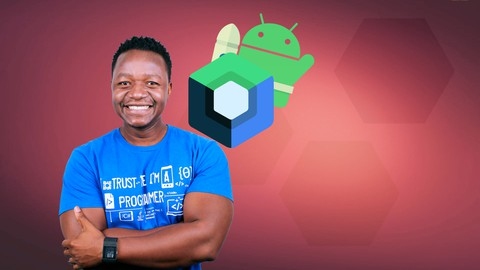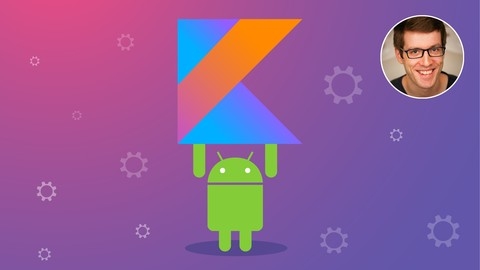Kotlin is a modern, concise, and powerful programming language that’s gaining immense popularity in the Android development world.
Its clean syntax, null safety, and functional programming features make it an excellent choice for building robust and efficient applications.
Learning Kotlin allows you to create everything from simple mobile apps to complex server-side applications, opening up a world of opportunities in the ever-growing tech landscape.
Finding a high-quality Kotlin course on Udemy that meets your needs can be a daunting task, especially with so many options available.
You’re likely searching for a course that’s comprehensive, engaging, and taught by experts, but also caters to your learning style and goals.
We’ve done the research and based on our analysis, The Complete Android 14 & Kotlin Development Masterclass stands out as the best overall course on Udemy.
This course goes beyond just teaching Kotlin syntax, offering a practical and project-based approach to building real Android applications using the latest version of Android and Kotlin.
It’s perfect for beginners who are eager to start building mobile apps and experienced developers looking to update their skills with the latest advancements in Android development.
While The Complete Android 14 & Kotlin Development Masterclass is our top pick, there are plenty of other excellent Kotlin courses available on Udemy.
We’ve compiled a list of recommendations for different learning styles and goals, from beginner-friendly introductions to advanced courses focused on specific aspects of Kotlin development.
Keep reading to discover the perfect Kotlin course for your journey.
The Complete Android 14 & Kotlin Development Masterclass
You’ll start by setting up your development environment with Android Studio and learn the fundamentals of Kotlin programming language.
The course begins with a simple Rock Paper Scissors game, where you’ll learn about variables, data types, control structures, and user input handling.
As you progress, you’ll dive into object-oriented programming concepts, creating classes, objects, and understanding inheritance.
One of the highlights is building a Unit Converter app, which will teach you about Jetpack Compose, a modern UI toolkit for building native Android apps.
You’ll learn how to create composable functions, handle user interactions, and manage state using ViewModel architecture.
The course also covers essential topics like navigation, working with databases using Room, making network calls with Retrofit, parsing JSON data, and integrating Google Maps API.
You’ll build practical apps like a Shopping List app, a Recipe app, a Wishlist app, and even a Music app with a drawer menu and bottom navigation.
Towards the end, you’ll learn about Firebase, a comprehensive app development platform.
You’ll build a chat room app, implementing features like email authentication, real-time databases, and push notifications.
Throughout the course, you’ll gain hands-on experience with various Android development concepts, tools, and libraries.
The instructor provides clear explanations, coding exercises, and challenges to reinforce your understanding.
You’ll also learn best practices for writing clean, maintainable code and optimizing app performance.
Android App Development Masterclass using Kotlin
The course starts by guiding you through setting up the necessary tools like Android Studio and configuring the Android SDK.
You’ll learn the basics of Kotlin programming with tutorials covering variables, conditions, classes, inheritance, loops, and more.
The course then dives into building practical Android apps, beginning with a simple “Button Counter” app to understand layouts, widgets, and event handling.
As you progress, you’ll develop more complex apps like a calculator, a top 10 downloader using AsyncTask, a YouTube player, and a Flickr browser that fetches and displays photos from Flickr’s API.
Along the way, you’ll learn core Android concepts such as activities, fragments, the activity lifecycle, saving instance state, permissions, content providers, databases with SQLite, and working with JSON data.
The course also covers advanced topics like ViewModel, LiveData, Coroutines for background processing, dialogs, settings, multiple database tables, database upgrades, and generating reports.
The instructor provides hands-on coding examples, challenges, and solutions to reinforce your understanding.
You’ll learn best practices, such as writing idiomatic Kotlin code, using libraries like Picasso for image loading, and implementing material design principles.
The course keeps you up-to-date with the latest Android SDK, Kotlin, and Gradle versions, ensuring you’re learning with the most recent tools and techniques.
The Complete Android 14 Developer Course - Java & Kotlin
This course starts by teaching you the fundamentals of Java and Kotlin programming languages, covering concepts like variables, data types, operators, control structures, and object-oriented programming principles.
You’ll learn through coding exercises that reinforce your understanding.
Once you have a solid grasp of the languages, the course dives into Android development.
You’ll learn how to set up Android Studio, create emulators, and build your first app.
It covers essential Android concepts like views, layouts, app components (activities, services, broadcast receivers), and app resources.
The course then takes you through building several practical apps like a unit converter, lucky number generator, French teacher app, and more.
These hands-on projects help you apply what you’ve learned and understand how different Android components work together.
One of the highlights is the extensive coverage of advanced topics like adapters, RecyclerView, CardView, fragments, navigation components, Android Jetpack libraries (ViewModel, LiveData, Data Binding, Room, Paging), and architecture patterns like MVVM.
You’ll build complex apps like a contacts manager, movie app, and quiz app, utilizing these concepts.
The instructor also covers integrating external services like Firebase (Realtime Database, Firestore, Authentication, Storage), Google Maps, and Machine Learning Kit.
You’ll learn to build apps like a journal app, chat app, and OCR app using these services.
Additionally, the course touches on monetization with AdMob, dependency injection with Dagger2, and advanced topics like coroutines and architecture patterns like MVC and MVP.
Throughout the course, you’ll work with both Java and Kotlin, giving you the flexibility to choose your preferred language.
The instructor provides clear explanations, practical examples, and downloadable resources like source code and design files.
Kotlin for Java Developers
You’ll start by setting up your development environment, installing the necessary tools like the JDK and IntelliJ IDEA.
The course then dives into the fundamentals of Kotlin, comparing and contrasting it with Java.
You’ll learn about variable declarations, type aliases, string templates, and how Kotlin handles equality differently.
The course covers essential topics like data types, null reference handling, arrays, and the Kotlin standard library.
Moving on, you’ll explore object-oriented programming in Kotlin, including classes, constructors, properties, functions, inheritance, interfaces, and advanced concepts like singletons, companion objects, and anonymous objects.
The course also introduces you to enums and import statements in Kotlin.
Control flow structures like loops, if expressions, when expressions, and try/catch expressions are covered in detail.
The course then delves into lambda expressions, collections (lists, maps, sets), and generics, including covariance, contravariance, and use-site variance.
File I/O is another important topic covered, where you’ll learn to read text and binary files, as well as walk the file tree.
The course also focuses on Java interoperability, teaching you how to call Java code from Kotlin and vice versa, handling nullability, and using annotations.
Throughout the course, you’ll work on practical challenges to reinforce your understanding of the concepts.
The final section revisits the converted Kotlin text adventure game, allowing you to apply what you’ve learned in a real-world scenario.
Kotlin for Beginners: Learn Programming With Kotlin
You’ll start by getting an overview of what you’ll create - simple “Hello World” programs that gradually become more sophisticated.
The course covers the fundamentals like variables, data types (including strings, integers, booleans), conditional statements using if/when, arrays, lists, and loops.
This lays a solid foundation for programming concepts.
Moving on, you’ll learn about functions - self-contained code blocks that can take parameters and return values.
This is a crucial concept in any programming language.
You’ll code along to reverse a list, giving you hands-on practice with loops and algorithms.
A major portion is dedicated to object-oriented programming (OOP) concepts like classes, objects, properties, methods, inheritance, interfaces, and more.
You’ll create your first class, learn about constructors, named parameters, abstract classes, and the open-closed principle.
The course even covers advanced topics like generics to avoid code duplication.
To make your OOP knowledge concrete, you’ll put it into practice by building a sample library inventory system.
The course also touches on singletons, enums, packages, and imports - important software design patterns.
Additionally, you’ll learn about binary and hexadecimal number representations, which are relevant for areas like graphics and low-level programming.
The course dives into bitwise operators too.
Towards the end, you’ll learn input/output (I/O) operations by building a simple console game.
There’s a code-along project to create a Hangman game from scratch, reinforcing file I/O concepts.
The course strikes a good balance between theory and practice, with plenty of quizzes and coding challenges to apply what you learn.
By the end, you’ll have a solid grasp of Kotlin programming fundamentals as well as exposure to more advanced OOP concepts.
Kotlin for Android: Beginner to Advanced
You’ll kick off by setting up the essential tools like JDK and Android Studio, getting familiar with the powerful Android Emulator.
Immediately, you’ll get hands-on by building your first Kotlin app, the “DinnerDecider” - a fun way to decide what’s for dinner!
This practical approach continues as you explore running apps on real devices.
Next, you’ll solidify your Kotlin foundation by mastering variables, strings, functions, conditional logic, collections, loops, and the powerful lambda expressions.
You’ll also dive into classes, inheritance, and handling nullability elegantly with Kotlin’s null safety features.
Also, you’ll venture into the world of version control with Git, learning to work with local and remote repositories on GitHub.
This invaluable skill will streamline collaboration and project management.
The course then dives deep into Android development, starting with layouts.
You’ll master creating responsive UI layouts for phones and tablets using ConstraintLayout, ensuring your apps look great on various screen sizes and orientations.
Get ready for an immersive experience as you build a real-world app called “Swoosh” while learning about activities, intents, context, and the activity lifecycle.
Along the way, you’ll tackle challenges like handling orientation changes and saving instance state.
Next up, you’ll explore ListView and RecyclerView, mastering the art of displaying lists and grids of data efficiently.
You’ll even build a “CoderSwag” app to showcase your newfound skills.
You’ll embark on building a full-fledged chat app called “Smack” using web requests, APIs, and sockets.
From user authentication to real-time messaging, you’ll gain invaluable experience in building robust, networked applications.
Finally, you’ll learn the process of publishing your apps to the Google Play Store, including generating signed APKs, creating store listings, and navigating the publishing process.
Jetpack Compose Crash course for Android with Kotlin
This course is an excellent resource for learning Jetpack Compose, Google’s modern UI toolkit for building native Android apps.
You will start by understanding the fundamentals of Compose, including its declarative nature, composable functions, and the importance of composition over inheritance.
After setting up your development environment with Android Studio, the course dives into the basics of Compose.
You will learn how to create a new Compose project, work with core UI elements like Text and Button, and customize their appearance using modifiers.
The course also covers essential Kotlin concepts like classes, inheritance, and lambda expressions, which are crucial for working with Compose.
As you progress, you will explore more advanced topics like state management, dynamic content, and recomposition.
The course teaches you how to use state to drive UI updates and how to lift state up to a ViewModel using Android Architecture Components like LiveData.
You will also learn about the declarative paradigm shift that Compose brings and how it differs from the traditional imperative approach.
The course includes a hands-on project where you will create a profile card layout and learn how to theme your Compose app by customizing colors, shapes, and fonts.
You will also work with dynamic lists using LazyColumn, asynchronous image loading with the Coil library, and navigation between screens using Jetpack Navigation.
Moving forward, the course introduces you to the MVVM (Model-View-ViewModel) architectural pattern and its implementation with Compose.
You will build a meal recipe app, fetching data from an API using Retrofit and handling network responses with Coroutines.
This section covers essential concepts like repositories, view models, and coroutine scopes and dispatchers.
Finally, the course delves into animations in Compose, teaching you how to animate size changes, multiple components, and even create a collapsing toolbar effect.
Complete Kotlin development masterclass
This course provides a comprehensive introduction to the Kotlin programming language.
You will start by learning the basics of Kotlin syntax, variables, data types, and user input.
The course then dives into core programming concepts like control flow, functions, collections, and object-oriented programming principles.
You’ll gain hands-on experience through coding exercises and projects, including building games like Hangman and Tic Tac Toe.
The course covers advanced topics such as coroutines for asynchronous programming, working with Android Studio to build Android apps, and using libraries like Retrofit for networking.
Along the way, you’ll learn about important programming concepts like null safety, exceptions, generics, and extensions.
The course also covers practical skills like debugging, using keyboard shortcuts, and working with an IDE.
At the end, you will have a solid foundation in Kotlin programming and be able to build real-world applications for various platforms, including desktop and mobile.
Android Jetpack Compose: The Comprehensive Bootcamp
The course covers a wide range of topics, starting from the fundamentals of Kotlin programming language and gradually building up to advanced concepts like Jetpack Compose, Firebase, Retrofit, and Clean Architecture.
You’ll begin by setting up your development environment on Windows or Mac and learn the basics of Kotlin, including variables, loops, functions, and collections.
The course then dives into object-oriented programming concepts, generics, enums, and sealed classes, providing a solid foundation for building robust applications.
Once you’ve mastered the fundamentals, you’ll dive into Jetpack Compose, Google’s modern UI toolkit for building native Android apps.
You’ll learn how to create composable functions, use modifiers, manage state, and think in a declarative mindset.
Along the way, you’ll build several apps, including a Tip Calculator, Movie App, Note App, and a Weather Forecast App, allowing you to apply your newfound knowledge in practical scenarios.
The course also covers advanced topics like integrating with APIs using Retrofit, implementing Clean Architecture principles, and working with Firebase for authentication, Firestore database, and cloud storage.
You’ll even build a capstone project, a Reader App, where you’ll put all your skills to the test, from navigation and login to saving and updating books in Firestore.
Throughout the course, you’ll learn how to use popular libraries like Coil for image loading, Hilt for dependency injection, and Room for local data persistence.
You’ll also gain experience with coroutines, handling JSON payloads, and implementing features like search, filtering, and sorting.
Kotlin for Android & Java Developers: Clean Code on Android
You will start by setting up your development environment with the Java JDK and Android Studio.
Then, you’ll dive into the fundamentals of Kotlin, covering variables, data types, null safety, control flow statements, collections, loops, and functions.
The course takes a modern approach by introducing functional programming concepts like lambdas, higher-order functions, and working with collections functionally.
You’ll learn how to use operators like map, flatMap, take, drop, zip, and chain functions together.
Moving on to object-oriented programming, you’ll explore classes, properties, constructors, methods, inheritance, abstract classes, interfaces, and more advanced topics like generics and covariance.
For Android development, you’ll create a sample app and learn to work with layouts, UI elements like CardView, and the Kotlin Android Extensions.
A major part is implementing a RecyclerView to display a list of habits.
You’ll then add functionality to create new habits, choose images, handle intents between activities, and show error messages.
The course dives deep into using SQLite databases in Kotlin, defining contracts, implementing database helpers, performing CRUD operations, and writing clean, secure transactions.
Throughout the course, you’ll work on coding challenges to reinforce the concepts.
This course strikes a good balance between teaching Kotlin fundamentals and applying them to build a real Android app.
Also check our posts on:


